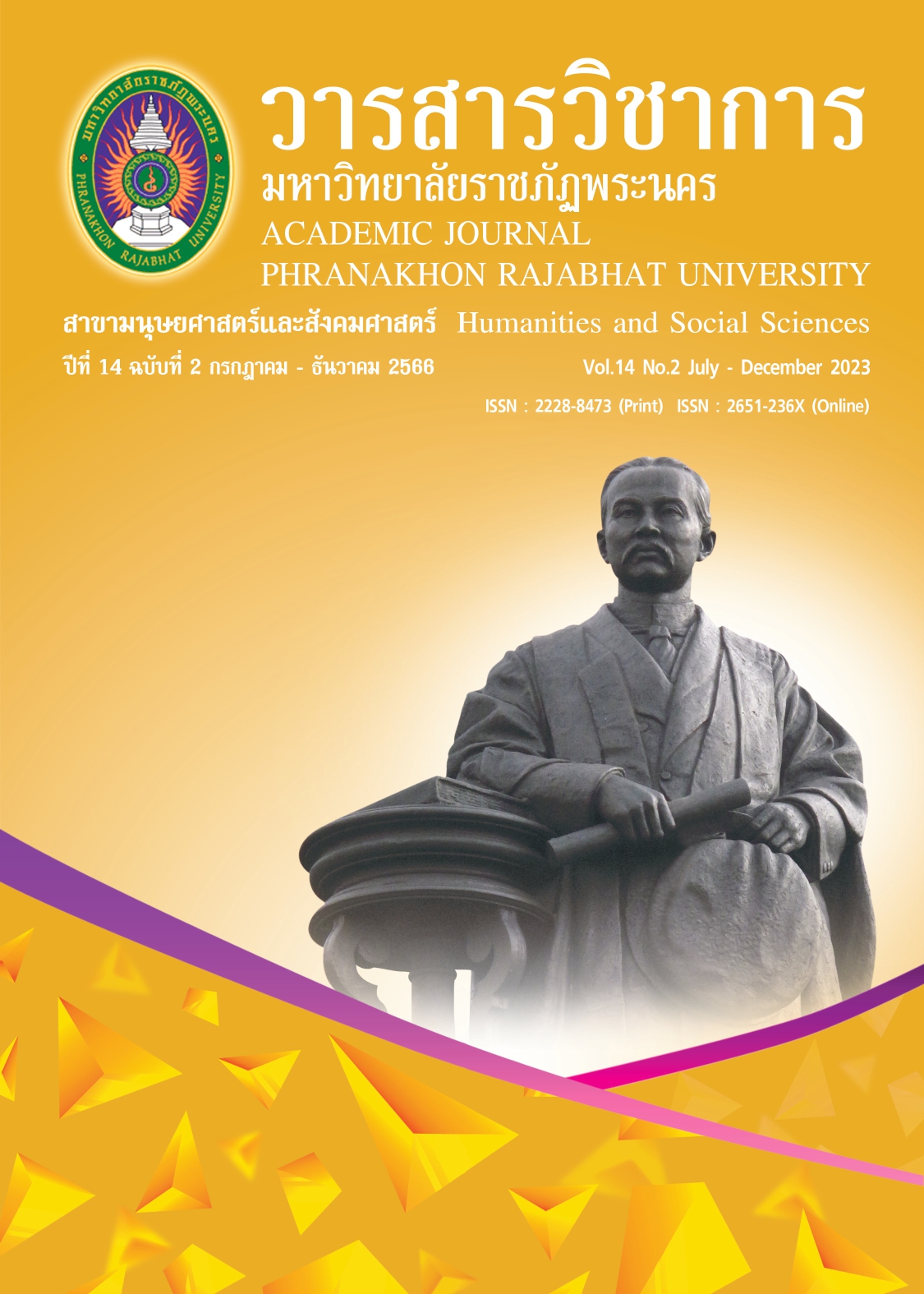MOTIVATION AND NEEDS IN ATTENDING PRIVATE TECHNOLOGICAL COLLEGE UNDER THE OFFICE OF VOCATIONAL COMMISSION IN LAEMCHABANG INDUSTRIAL ESTATE AREA, CHONBURI
Keywords:
Private Technological College, Motivation, NeedsAbstract
The purposes of this research were 1) to study background of students in Private Technological College under the Office of Vocational Commission in Laemchabang Industrial Estate Area, Chonburi, 2) to study the students’ motivation and needs, 3) to compare their motivation and needs in attending private technological college by academic levels, and 4) to propose the guidelines to increase the number of student in accordance with their motivation and needs. The samples of 335 certificate level students were selected using Krejcie Morgan’s technique by stratified random sampling. A questionnaire with the reliability of 0.96, and an interview form on motivation and needs in attending private technological college were used as research instruments. Statistics used in data analysis were mean, standard deviation and ONE-WAY ANOVA. The research findings indicated that: 1) the students’ motivation and needs in attending private technological college were overall at a high level, including occupation in labor market, intuition, and personal aspect were found at a high level respectively while social aspect was found at a medium level. 2) The comparative results of the students’ motivation and needs in attending private technological college classified by level were found difference at the statistical significance level of .05. 3) The guidelines to increase the number of students in accordance with their motivation and needs consisted of 6 approaches including 1. Institution image creation, 2. Initiating dual vocational education system, 3. Teacher’s morale development, 4. Building Vocational Education reputation, 5. Creating continuous and sustainable activities, and 6. Internationalizing the vocational education.
References
Braun, V. & Clarke, V. (2006). Using Thematic Analysis in Psychology. Qualitative Research in Psychology, 3(2): 77-101.
Chairattanawan, K. (2019). Approaches in driving and developing
vocational education in Thailand. Journal of Vocational Institute, 4(2), 18-30. (In Thai)
Fongsri, P. (2009). Creation and development of research tools. Bangkok: Darn Sutha
Press Company Limited. (In Thai)
Herold, K., Tarkiainen, A., & Sundqvist, S. (2016). How the source of word-of-mouth influences
information processing in the formation of brand attitudes. Journal of Marketing for Higher Education, 26(1), 64-85.
Houle, C. (1961). The inquiring mind. Madison, WI: The University of Wisconsin Press.
Kathawanit, T. (2003). General Psychology. Bangkok: SE-Education. (In Thai)
Klinprathum, R. (2002). Motivation for selecting marketing programs of high vocational
students. (Master thesis in Business Education), Srinakharinwirot University.
Krejcie, R. V., & Morgan, D. W. (1970). Determining Sample Size for Research Activities.
Educational and Psychological Measurement, 30(3), 607 – 610.
Lansusheep, S. (2002). Motivations for Choosing to Study at Mahidol University International
College. (Master thesis of Arts in Public Administration), Burapha University. (In Thai)
Likert, R. (1967). The human organization: Its management and value. New York: McGraw-Hill.
Maslow, A. H. (1987). Motivation and personality (3rd ed.). Harper & Row Publishers.
Moratthian, Y. (2016). Development of school administration model towards excellent school
under Bangkok Metropolitan supervision. Educational Administration Journal Burapha University, 10(1), 31 - 45. (In Thai)
Murray, H.A. (1938). Explorations in personality. Oxford Univ. Press.
Nikmanon, P. (1985). Non-formal Education. (4th edition). Bangkok: Thipaksorn. (In Thai)
Office of the Vocational Education Commission. (2017). Vocational Education Development
Plan B.E.2560 – 2579 (2017-2036). Bangkok: Office of the Vocational Education Commission. (In Thai)
Office of the Permanent Secretary, Ministry of Education. (2016). Educational Development Plan of Ministry of Education No. 11 B.E.2555 – 2559 (2012-2016). Bangkok: Ministry of Education. (In Thai)
Saithanu, P. (2009). Motivation for choosing vocational education among Year 1
students in vocational schools under the Office of Vocational Education Commission. (Master thesis in Educational Research), Mahasarakham University. (In Thai)
Senate Education Commission. (2021). Approaches in promoting, supporting and upgrading
the quality of private vocational education management standards of the Education Commission. Retrieved from https://dl.parliament.go.th/handle/lirt/573720[2022, 11 Sep.]
Sereerak, C. (2014). Thai bilateral vocational education.
Retrieved from http:// www.vec.go.th/portals/0/tabid/103/Articleld/2934/2934.aspx
[ 2014, 14 Oct.]
Srisaad, B. (2011). Basic Research. (9th edition). Bangkok: Suwiriyasarn. (In Thai)
Thaithani, J. (2014). Motivation to enroll in short-term vocational courses among
students of Bangkok Vocational Training Center. ๖Master thesis in Adult Education, Srinakharinwirot University. (In Thai)
Pimonsin, P. (2009). Management of Corporate Image. in Academic Teaching Instruction
on Public Relations Administration. Nonthaburi Sukhothai Thammathirat Open University. (In Thai)
Prachathai. (2017). Why don’t children choose vocational education even though everyone
cheers for it?. Retrieved from https://prachatai.com/journal/2017/04/71058
[ 2017, 15 Sep.]
Downloads
Published
How to Cite
Issue
Section
License
Copyright (c) 2023 Academic Journal Phranakhon Rajabhat University

This work is licensed under a Creative Commons Attribution-NonCommercial-NoDerivatives 4.0 International License.
"บทความวิชาการในวารสารฉบับนี้ ถือเป็นความรับผิดชอบของผู้เขียนเท่านั้น"
สงวนลิขสิทธิ์ตามพระราชบัญญัติลิขสิทธิ์




